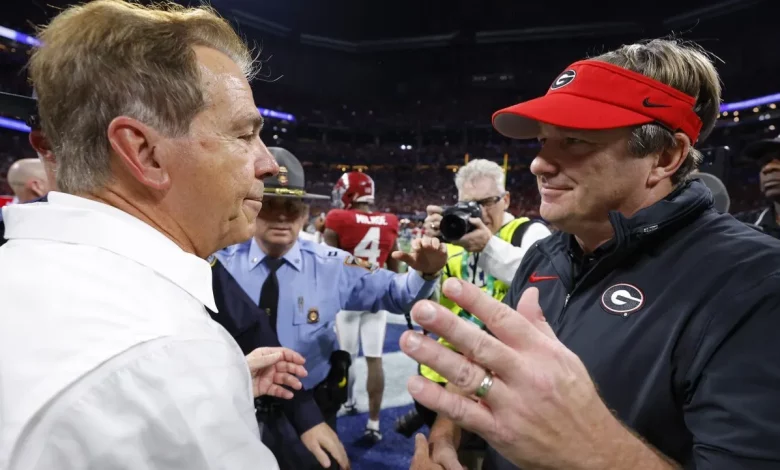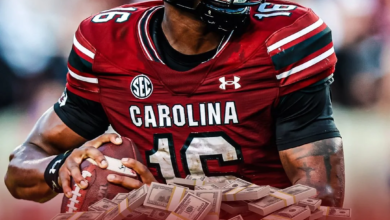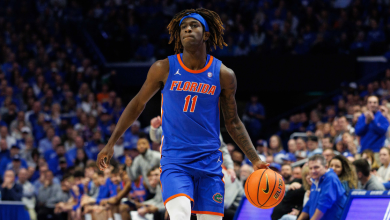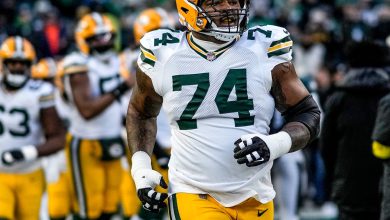Are the NIL Tax Shields in Georgia and Alabama constitutional? Most likely.

In the world of college athletics, NIL (Name, Image, and Likeness) deals have revolutionized how athletes can earn income while still participating in college sports. The introduction of NIL rights for college athletes has opened up opportunities for compensation, leading to a surge of endorsement deals, sponsorships, and personal appearances that were previously prohibited. As part of this NIL boom, states like Georgia and Alabama have introduced tax shields or tax incentives to attract both athletes and businesses to invest in the local sports economy. The tax incentives offered in these states, designed to reduce the tax burdens on NIL-related earnings, have become a point of discussion regarding their legality and constitutional standing.
This article will explore whether these NIL tax shields in Georgia and Alabama are constitutional, breaking down both the legal arguments and the broader implications of such legislation. Given the context of NIL laws and tax regulations, the answer likely leans toward “most likely” constitutional, but with caveats that require a deeper understanding of tax law, state powers, and constitutional principles.
What Are NIL Tax Shields?
First, it’s important to understand what NIL tax shields are. Under NIL legislation, college athletes can profit from their names, images, and likenesses through endorsement deals, personal appearances, social media promotions, and other commercial ventures. However, these earnings are subject to federal income tax, just like any other form of income. In response to this, states like Georgia and Alabama have introduced tax incentives or shields to make their states more attractive for athletes to reside and engage in NIL activities.
In Georgia, lawmakers passed a tax shield that allows businesses who enter into NIL deals with student-athletes to claim certain tax credits, effectively lowering the tax burden on those transactions. This could apply to a variety of sponsorships and endorsements, especially in the realms of college football and basketball, where athletes generate substantial attention. Similarly, Alabama has passed similar tax shields, offering deductions for certain businesses that sign NIL deals with local athletes.
The idea behind these tax incentives is straightforward: both states are seeking to keep talent at home and make their states appealing for NIL deals. The fear is that without these incentives, their local athletes may be tempted to go to states with less tax burden or to states offering more lucrative opportunities, potentially leading to a loss of business and revenue for the state. By offering NIL tax shields, both Georgia and Alabama are creating favorable environments for their athletes and businesses that wish to capitalize on this new era in college athletics.
The Constitutional Basis of State Taxation Powers
At the heart of the question of whether these NIL tax shields are constitutional lies an understanding of state taxation. The U.S. Constitution grants states significant authority to enact tax laws, including those related to income. The 10th Amendment of the Constitution reserves to the states all powers not specifically granted to the federal government, including the power to impose taxes. This is a broad power, but there are constraints and limitations that must be respected, particularly where discriminatory practices or federal supremacy are concerned.
1. Equal Protection Clause
A key constitutional concern in any state law that offers financial benefits or tax incentives is the Equal Protection Clause of the 14th Amendment. This clause guarantees that no state shall “deny to any person within its jurisdiction the equal protection of the laws.” The concern in the case of NIL tax shields would be whether offering these tax benefits to athletes who sign NIL deals is discriminatory in any way—specifically whether it unfairly privileges athletes or certain businesses in ways that violate the constitutional principle of equal treatment.
In the case of NIL tax shields, the primary argument for their constitutionality would be that they apply broadly to all student-athletes who sign NIL contracts, regardless of the sport they play or their background. By targeting a particular group (student-athletes) for a tax break, states like Georgia and Alabama are not discriminating against any particular race, gender, or class. Since the tax incentives are available to all qualifying athletes and businesses, the law is likely to withstand scrutiny under the Equal Protection Clause.
It’s important to note that the government is permitted to provide targeted incentives or benefits to certain groups or industries (such as education or sports), as long as the benefits are not excessively discriminatory. Therefore, offering NIL tax shields to athletes involved in NIL activities would likely be deemed a legitimate exercise of the state’s taxing authority, as it aims to promote economic development and competitiveness in a growing industry, rather than discriminating against particular groups.
2. The Dormant Commerce Clause
Another constitutional issue that could arise is the Dormant Commerce Clause, a principle that prohibits states from enacting laws that discriminate against or excessively burden interstate commerce. The argument here would be whether Georgia and Alabama’s tax incentives create an unfair advantage for businesses and athletes in those states, potentially discouraging commerce between states or leading to an uneven playing field in the realm of NIL deals.
For instance, if businesses or athletes in other states were penalized by these incentives—such as by being taxed more heavily or losing out on opportunities—they might argue that these tax shields violate the Dormant Commerce Clause. However, in the case of the NIL tax shields, these state laws are unlikely to face serious challenges on commerce grounds because:
- NIL incentives are not discriminatory: The tax shields are aimed at encouraging local businesses and athletes to engage in deals within the state, rather than targeting or prohibiting cross-border transactions.
- The law promotes local economic activity: The primary goal of these incentives is to stimulate the local economy by attracting businesses and talent to Georgia and Alabama. This aligns with the permissible use of state powers to promote local commerce without imposing undue burdens on out-of-state competitors.
As a result, these state laws should pass muster under the Dormant Commerce Clause as they are not likely to hinder interstate commerce in a significant or discriminatory way.
The Impact of NIL on State Economies
Both Georgia and Alabama are facing growing competition in the world of college sports, particularly in the context of football and basketball, where these states’ schools are among the most competitive in the country. Given that college athletes can now engage in NIL activities, both states see an opportunity to strengthen their economies by incentivizing businesses to enter into NIL deals with homegrown talent. The economic impact of NIL deals is significant, and both states want to capture a larger share of the market by offering favorable tax treatment.
The Georgia Bulldogs and Alabama Crimson Tide have long been major players in college football, and both states are home to nationally recognized universities that can attract elite athletes. By offering tax shields and other incentives, these states can ensure that businesses, local and national, partner with their athletes in meaningful ways, thereby growing the sports marketing industry and contributing to local economies. Georgia and Alabama are likely within their constitutional rights to implement these tax shields as an economic development tool.
Potential Challenges to NIL Tax Shields
While the NIL tax shields in Georgia and Alabama are likely constitutional, there are still potential challenges that could arise, both on the state and federal levels. These challenges would likely come from parties that feel they are being excluded from these tax incentives or from businesses in other states that feel that these laws unfairly benefit Georgia and Alabama over their own states.
- Federal Legislation on NIL: If federal lawmakers decide to enact national NIL legislation, they may seek to regulate how NIL compensation is handled across the states. If such legislation were passed, it could supersede the state tax shields, creating a more uniform approach across the country. However, this would likely take time and require significant action from Congress.
- Corporate Challenges: Some businesses may feel that the tax incentives provided to athletes in Georgia and Alabama create an unfair competitive advantage. If companies or individuals in other states believe that the incentives lead to an unlevel playing field, they may challenge the tax shields in court.
- Changes in Federal Tax Law: Another potential challenge could come from changes to federal tax law. For example, if Congress were to pass legislation that restricts how state tax credits or deductions can be applied to NIL deals, it could undermine the effectiveness of the tax shields. However, this remains speculative, and it is unclear whether such changes would impact the overall constitutionality of the tax shields in Georgia and Alabama.
The Likely Constitutional Standing of NIL Tax Shields
In conclusion, the NIL tax shields in Georgia and Alabama are likely constitutional based on existing legal principles. These states have significant authority to enact tax laws under the U.S. Constitution, and their tax incentives targeting NIL deals appear to be in line with principles of equal protection and commerce clause rules. The fact that these laws are designed to stimulate local economies, encourage investment, and attract talent does not violate constitutional limits.
As long as these tax shields are applied equitably and are not overly discriminatory, they should stand up to constitutional scrutiny. Moreover, the growing trend of NIL deals across the country points to a future where states like Georgia and Alabama will continue to explore innovative methods to attract businesses and talent through competitive incentives.
While challenges could arise, particularly from federal lawmakers or businesses outside of these states, the general legal framework surrounding state taxation and NIL laws suggests that these tax shields will likely remain in place, further solidifying Georgia and Alabama’s status as strong players in the evolving landscape of college athletics.









